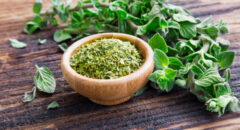 I'm sure you've quite possibly heard of the amazing benefits that you can get from fish oil, but krill is one of the few oils that doesn't get as much discussion, though it should. If you aren't familiar with what krill is, it's a translucent crustacean that lives in the sea and feeds on phytoplankton. Krill oil is produced through the extraction of oils from krill body fat. This oil is full of beneficial nutrients for humans. There are some studies that even suggest that this highly uncommon supplement surpasses fish oil when it comes to effectiveness.
I'm sure you've quite possibly heard of the amazing benefits that you can get from fish oil, but krill is one of the few oils that doesn't get as much discussion, though it should. If you aren't familiar with what krill is, it's a translucent crustacean that lives in the sea and feeds on phytoplankton. Krill oil is produced through the extraction of oils from krill body fat. This oil is full of beneficial nutrients for humans. There are some studies that even suggest that this highly uncommon supplement surpasses fish oil when it comes to effectiveness.
According to Dr. Manny, the Chairman of Obstetrics, Gynecology and Reproductive Science at Hackensack University Medical Center in New Jersey, "When it comes to fats, omega-3 fatty acids are some of the best. They are essential for proper functioning of the heart, brain and body." Dr. Manny goes on to describe how most individuals try to reap the benefits of omega-3 fatty acids by taking several fish oil pills each day. What he mentions, though, is that krill is a better method of doing this.
In fact, along with omega-3 benefits, krill oil is also said to provide cardiovascular benefits, neurological development, reduce inflammation, prevent arthritis, balance out depressive chemicals in the brain, ease PMS systems and assist in gastric health.
Krill Oil Benefits
There are many physicians, such as Dr. Manny, who agree that krill may be a better option over fish oil. Here's why:
1. Absorption
The triglycerides that make up fish oils make it extremely hard for the body to absorb the nutrients, therefore you have to take several capsules in order to get a decent dosage in your system. Krill oil is different in that it is made up of an easier composition with phospholipids allowing the body to absorb more while intaking less.
2. Shelf Life
Krill oil contains many more antioxidants than fish oil, one being astaxanthin. It is recognized as being one of the most powerful antioxidants found in nature. It is particularly known for its skin and eye benefits, as well as offering a prolonged shelf life to whatever it is a part of.
3. Low Mercury
Krill is at the bottom of the food chain of the ocean, and therefore its only food source is phytoplankton. Unlike fish oil, krill has non-detectable levels of mercury and other toxins. This is because of the way the ocean's ecosystem works. The fish that provide fish oil feed off of other organisms that potentially carry high levels of mercury and other harmful toxins. This then transfers into the fish oil supplements.
4. Sustainability
With krill making up the largest biomass on earth (500+ tons), only about 1% of its population is being used on a yearly basis. In fact, there are several organizations (both government and non-profit) that are focused on making sure that harvesting laws regulate against overfishing of krill.
5. No After Taste
Ever experience what is sometimes referred to as the 'fish burp'? Krill offers the benefit of no fishy after taste or fishy gas (gross!).
Visit KissTheChaos.com and follow me on Instagram: @Ooolala_laa








